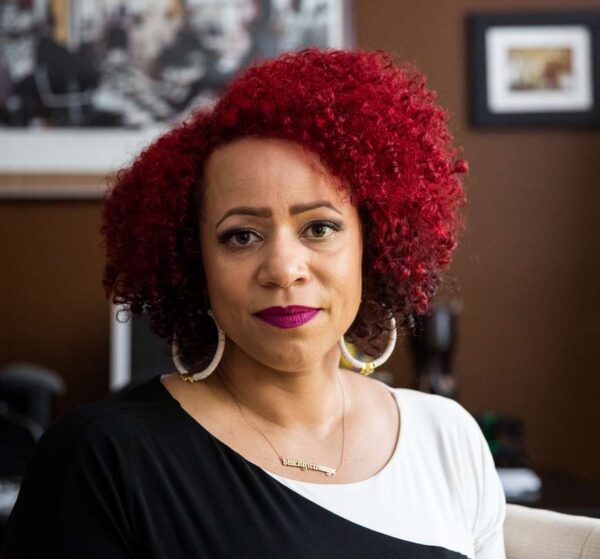
(Updated at 10:50 a.m.) Arlington Public Library is hosting Pulitzer Prize-winning “1619 Project” author Nikole Hannah-Jones as part of “Banned Books Week” next month.
The journalist and Howard University faculty member who led the 2019 New York Times project will talk about her book and “the freedom to read.” The event is set to take place on Tuesday, Sept. 20 at 7 p.m. in the Washington-Liberty High School auditorium.
“While this event is taking place at Washington-Liberty High School, Arlington Public Schools is not involved in the planning or hosting of this event,” notes the event page on the library website.
The event is “first-come, first-served until capacity is reached,” the page also notes. For those who can’t attend in person, the event will be live-streamed.
The “1619 Project” is an effort to better explain and contextualize slavery’s legacy, as well as Black Americans’ contributions, within the center of America’s history. It’s named as such after the date that the first enslaved African peoples arrived in Virginia.
The event at W-L is part of the nationwide “Banned Books Week,” an annual celebration by libraries and bookstores that highlights the value of “free and open access to information.”
The county’s library director Diane Kresh explained in a 2017 blog post that the reason Arlington Public Libraries celebrates Banned Books Week is that books are expressions of freedom.
“Books are change agents. They challenge our beliefs and biases. They expose us to different experiences and cultures. They help us learn to think for ourselves and not follow the crowd or cult of public opinion,” Kresh wrote.
The lecture is also part of the larger “Arlington Reads” event series.
The “1619 Project” has been both celebrated for its groundbreaking exploration of the topic and criticized for what some say are a series of historical inaccuracies and an emphasis on the significance of enslaved peoples in America’s history over other well-known dates, people, and events. It also sparked political controversy, with conservative members of Congress calling for measures to prevent it from being taught in K-12 schools.

